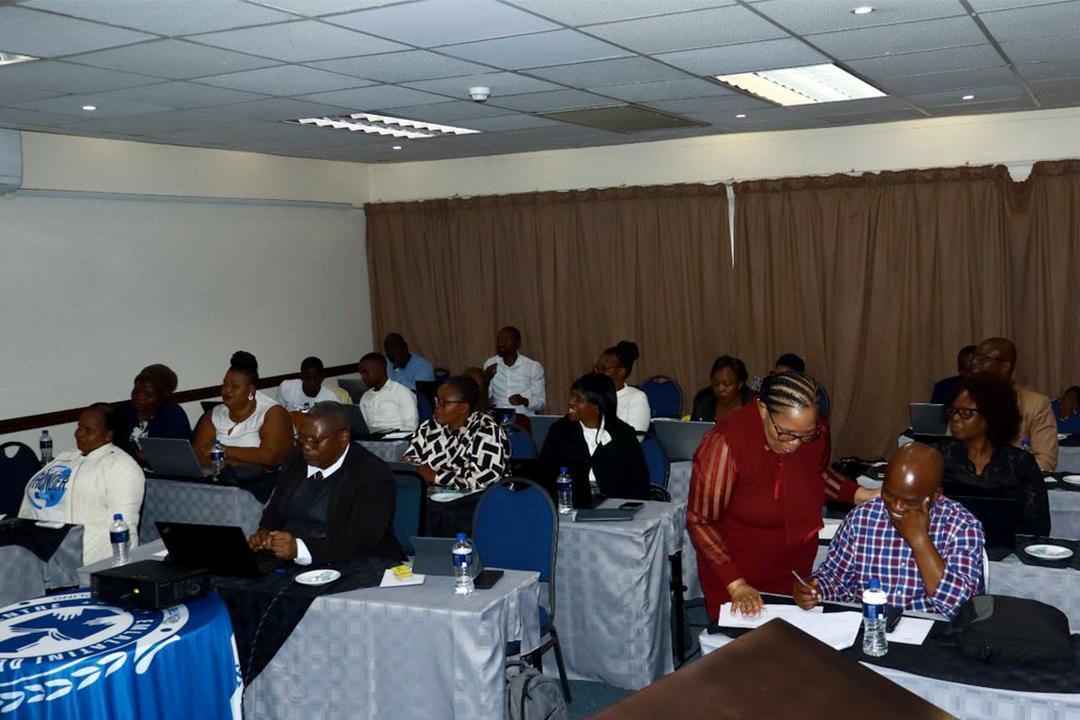Africa-Press – Eswatini. The Ministry of Education and Training, in collaboration with the Emlalatini Development Centre (EDC) and the Commonwealth of Learning (COL), on Monday officially opened a workshop on managing e-learning centres, aimed at capacitating coordinators of Rural Education Centres (RECs), Sebenta, and Industrial Training Centres (ITCs) across Eswatini.
The event, held at The George Hotel , was officiated by the Principal Secretary in the Ministry of Education and Training, Nanikie Mnisi, who described the workshop as a pivotal moment in Eswatini’s Technical and Vocational Education and Training (TVET) landscape.
“This initiative is not about theory, it is a practical effort to take skills development directly to the people in their communities. By making training accessible to out-of-school youth, adults, and vulnerable populations, we are directly addressing the challenges of poverty and working to improve livelihoods in line with the Sibaya Nkwe Policy,” Mnisi said.
She highlighted that the workshop is part of a broader plan to decentralize Open TVET, with EDC playing a leadership role in rolling out e-learning centres and providing laptops and training to strengthen a community-based education model. Mnisi further noted that the Eswatini College of Technology could also adopt decentralization to extend advanced technical training to more regions.
Mnisi acknowledged the collaboration between the Ministry of Education and Training and other partners, citing a recent two-day solar energy workshop hosted at VOCTIM in partnership with the Ministry of Natural Resources and Energy as an example of cross-sectoral cooperation. She called for more ministries, youth and women’s organizations, and NGOs to join efforts in ensuring the sustainability of Open TVET.
While celebrating progress, Mnisi admitted Eswatini still faces challenges such as limited ICT infrastructure in rural areas, the digital literacy gap, and the high cost of technology. However, she commended national initiatives including rural electrification supported by Taiwan, the solar energy initiative, and the Eswatini Digital Transformation Strategy (2024–2028) which seeks to leverage technologies like artificial intelligence to improve accessibility and efficiency.
EDC Principal Simon Maseko, in his welcoming remarks, underscored the significance of the workshop, describing it as a paradigm shift in how education and TVET training are delivered.
“This effort is about more than just technology, it is about empowerment. We are bringing learning directly to our communities, to the out-of-school children, youth, and adults who need it most. Our goal is to equip them with the skills and knowledge to thrive in a rapidly changing world,” Maseko said.
He emphasized that the decentralized model is grounded in established educational theories, including Access and Equity in Open and Distance Learning, Social Constructivism in online learning, and Human Capital Theory, which link education directly to national development.
The Ministry of Education and Training confirmed that the Commonwealth of Learning will soon visit Eswatini to explore opportunities for supporting the development of Open TVET curricula for TVET institutions, a step expected to further strengthen skills development in rural areas.
For More News And Analysis About Eswatini Follow Africa-Press







